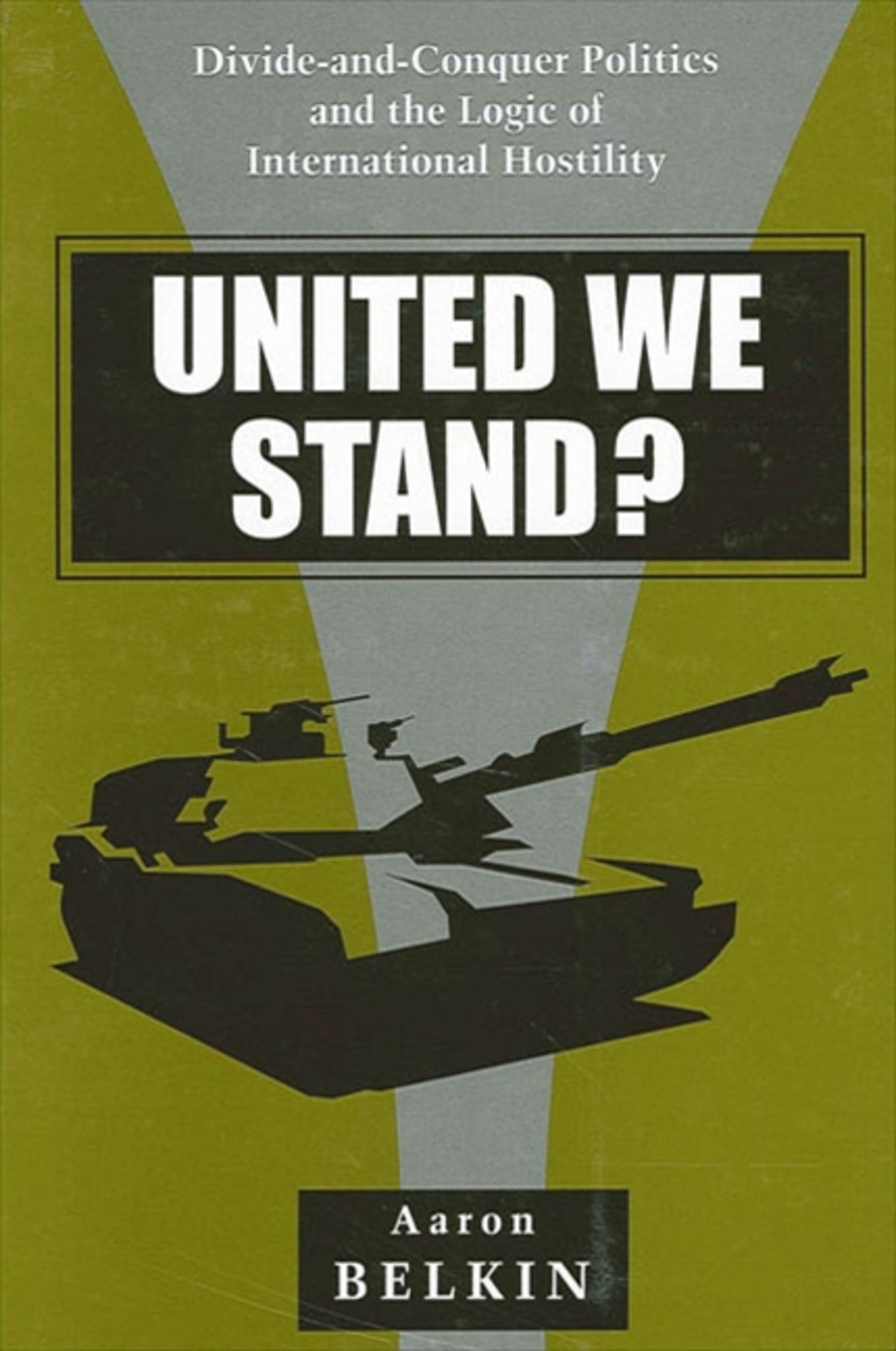We're sorry. An error has occurred
Please cancel or retry.
United We Stand?

Some error occured while loading the Quick View. Please close the Quick View and try reloading the page.
Couldn't load pickup availability
- Format:
-
01 January 2006

Argues that leaders sometimes promote international conflicts to keep their own military politically divided.
It has long been assumed that leaders engage in international conflict to unify their followers-what is often called the "rally 'round the flag" hypothesis. Despite its intuitive appeal, however, this hypothesis does not always provide a compelling explanation of the relationship between domestic politics and international conflict. In United We Stand? Aaron Belkin shows that in one important realm, civil-military relations, leaders often prefer divisiveness over cohesion. When they feel domestically vulnerable, leaders use international conflict in order to create and exacerbate rivalries among their own military forces to lower the risk of a coup and to contribute to the consolidation and stability of the political order. Case studies include post-Soviet Georgia and Syria.


"…makes a useful … contribution to the civil–military relations literature." — Perspectives on Politics
"…straddles civil-military relations, organization theory, and international relations, presenting counter-intuitive ideas on the relationship between civil-military relations and conflict and, for that reason, is well worth reading." — Political Science Quarterly
"Belkin addresses an underexplained source of international conflict and does a persuasive job of turning widely accepted truisms on their heads. His basic argument is important, clearly presented, and well supported." — Paul N. Stockton, coeditor of Reconstituting America's Defense: The New U.S. National Security Strategy
"United We Stand? presents a novel, intriguing argument about how states' civil-military relations affect their international relations." — Risa Brooks, author of Political-Military Relations and the Stability of Arab Regimes
Preface
Acknowledgments
PART ONE: INTRODUCTION
1. Regime Vulnerability and International Conflict
PART TWO: THEORY
2. Coup Risk and Military Division: Hostility within the Armed Forces and Regime Survival
3. A Theory of Counterbalancing as a Cause of International Conflict
PART THREE: DATA
4. Regime Vulnerability, Counterbalancing, and International Conflict during the Cold War: A Quantitative Analysis
Aaron Belkin and Evan Schofer
5. Regime Vulnerability as a Cause of Counterbalancing in Syria in the Early 1970s
6. When Dividing the Military Provides an Incentive for Conflict: Fragmented Military Forces and International Conflict in Shevardnadze’s Georgia
7. Conclusion
Notes
References
Index
SUNY Series in Global Politics



